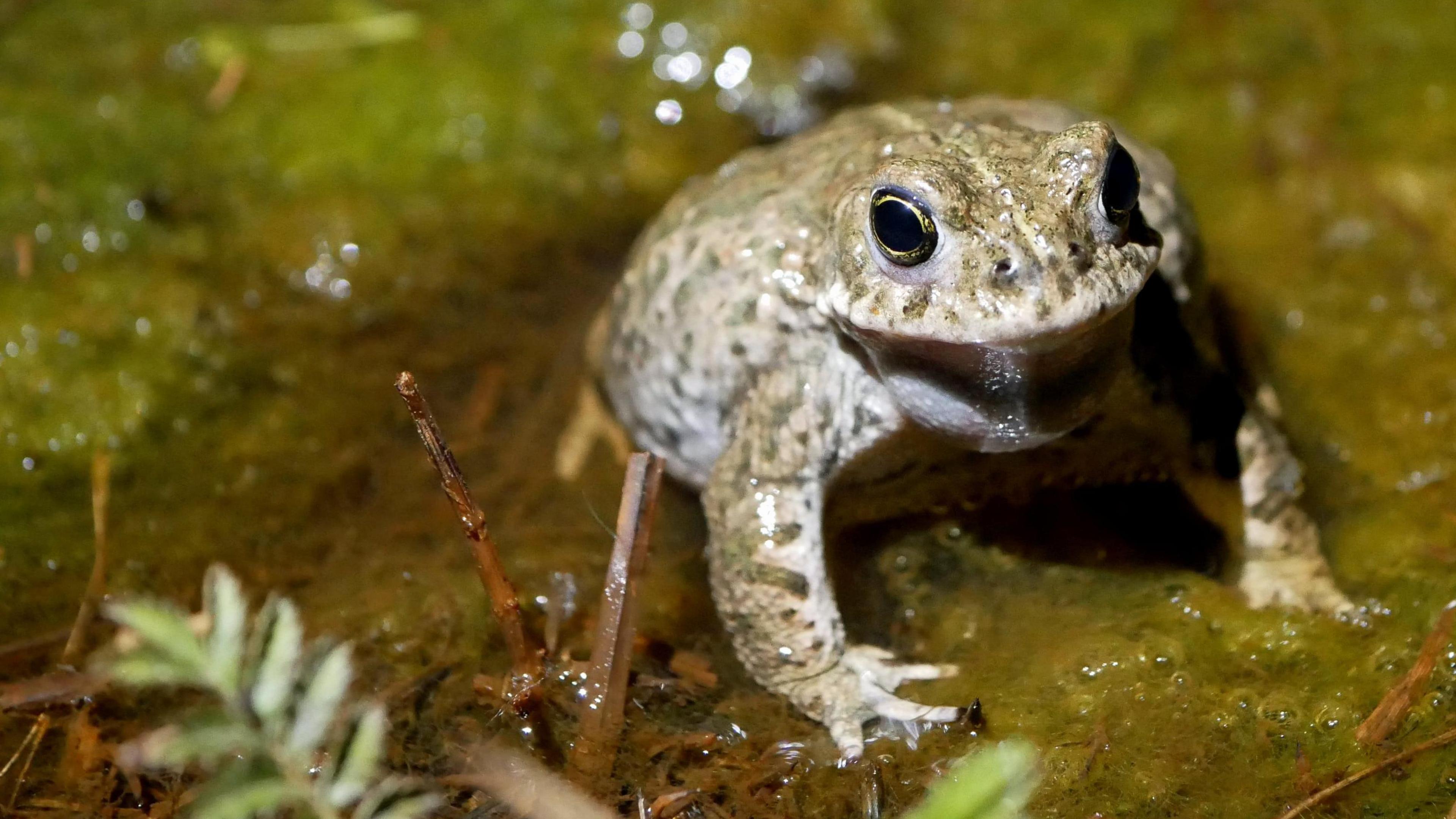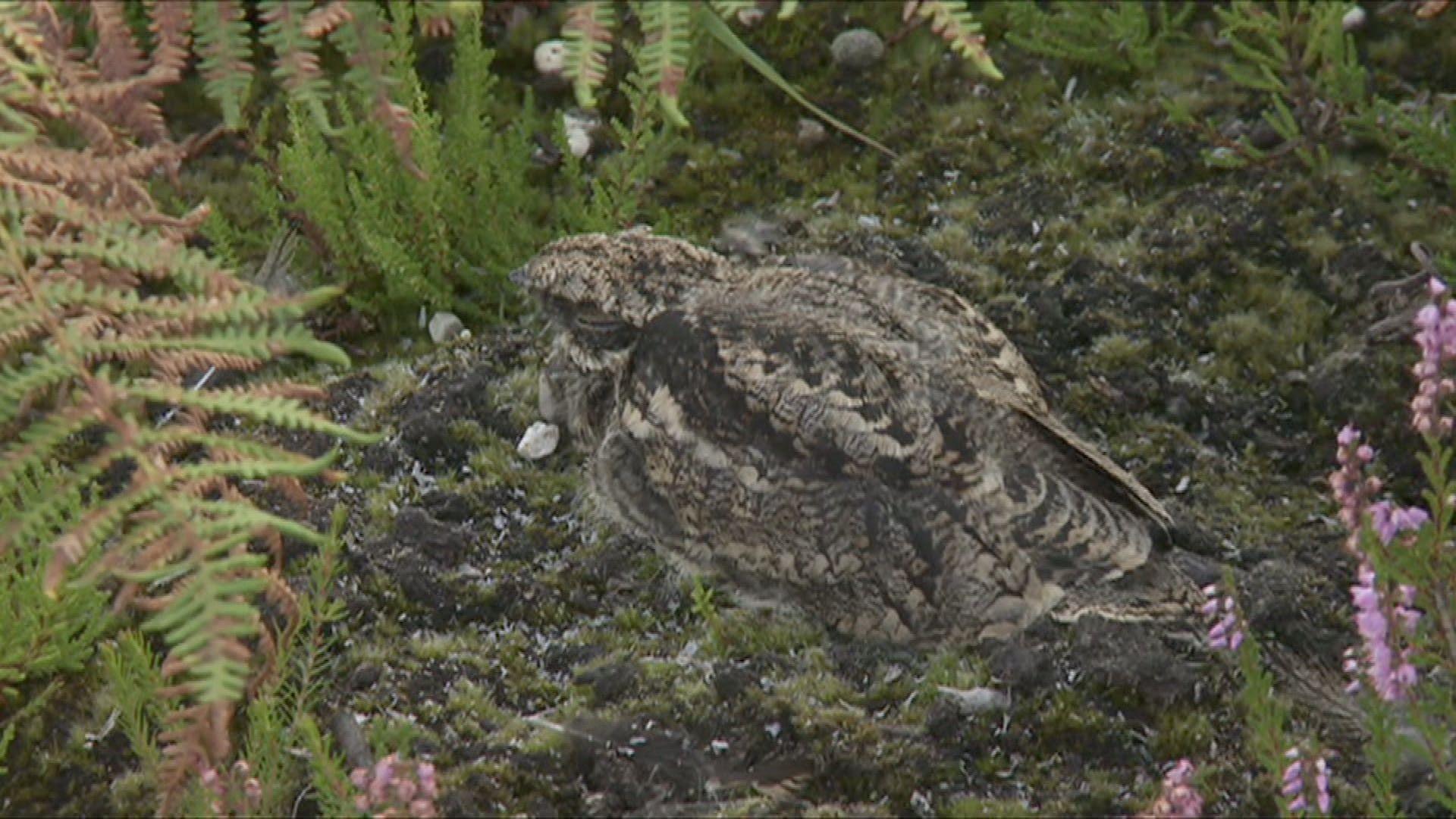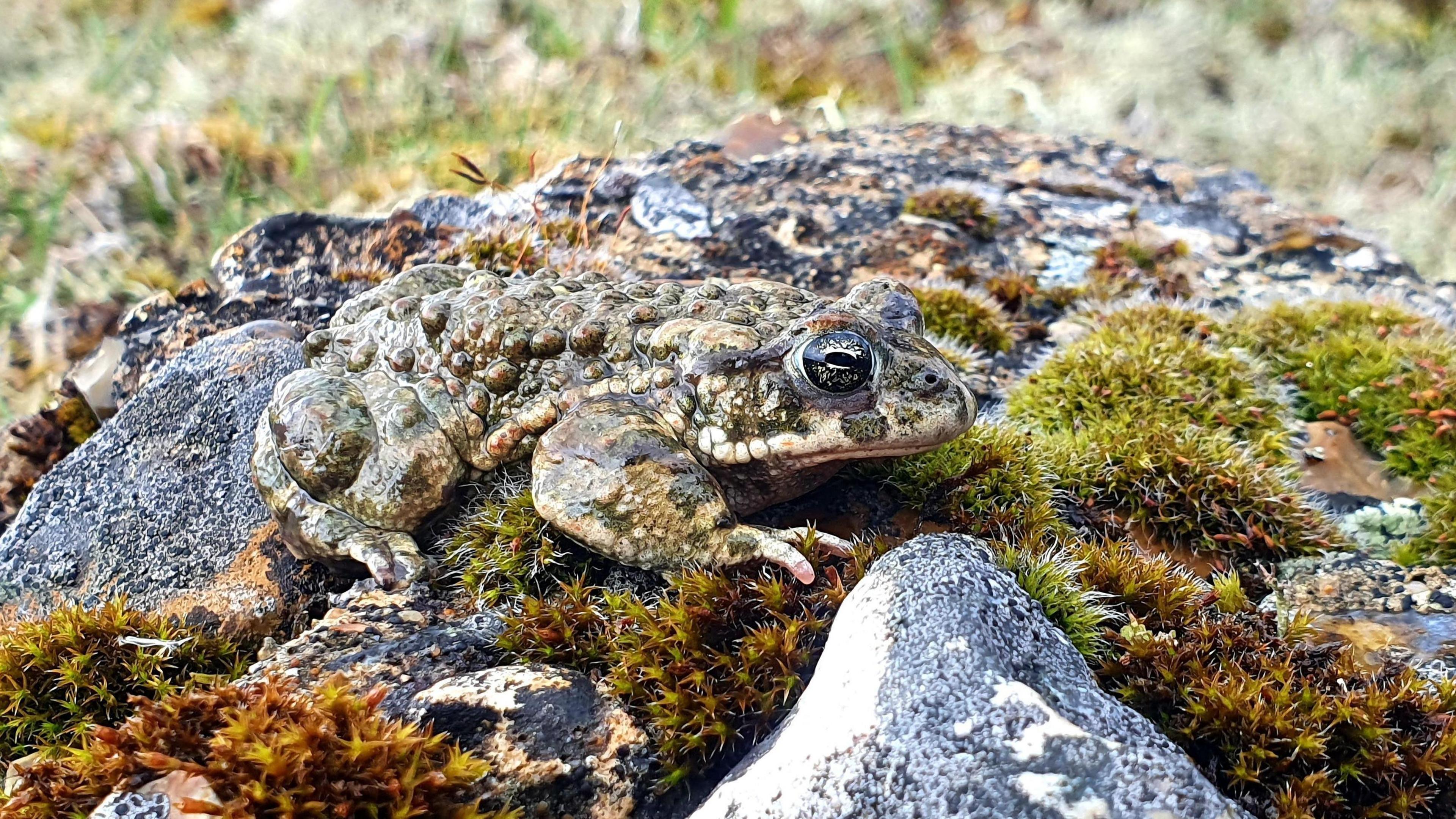New strategy aims to reverse species decline

A delivery group will work to create better spaces for species such as natterjack toads
- Published
A council has given the green light to a plan that aims to reverse the decline of certain species of wildlife in the area.
BCP Council endorsed the local nature recovery strategy which commits to protecting greenspaces and ensuring wildlife thrives throughout Bournemouth, Christchurch and Poole "for generations to come".
A delivery group is being formed to work with local communities to create better spaces for species such as nightjars and natterjack toads.
Andy Hadley, head of climate response, energy and environment, said: "Nature recovery, and reversing decline, is vitally important in both rural and urban areas and the strategy we've endorsed represents a call to action for positive change."
He added: "Our fantastic greenspaces team work brilliantly to maintain and restore our vast natural spaces and this strategy, and working with partners, will ensure we can go even further in protecting nature and wildlife."
There are about 2,500 hectares of greenspaces in the council's region, and 19 sites of special scientific interest.
BCP Council's cabinet endorsed the strategy at a meeting on Wednesday.
It was created alongside Dorset Council to set out a "clear vision" for nature recovery over the next 10 years.
Dorset Local Nature Partnership, Dorset Wildlife Trust, and Public Health Dorset were among the organisations that contributed towards it.
Further discussions will take place between Natural England and Dorset Council ahead of publishing a final strategy in the winter.
Get in touch
Do you have a story BBC Dorset should cover?
You can follow BBC Dorset on Facebook, external, X (Twitter), external, or Instagram, external.
Related topics
- Published28 July

- Published12 May
